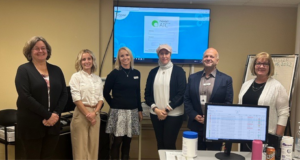This article was written by Jackson Graham for The Mandarin, published February 02, 2022. To read the original, click here.
Temporary bans on elective surgery have led doctors to call for a national plan to address the rising backlog of patients when hospital capacity frees up.
Restrictions on non-urgent elective surgery in public hospitals in the ACT and Queensland, and in both public and private hospitals in NSW, Victoria and South Australia, have kept beds and staff available as Omicron coronavirus cases spread.
But with wait times becoming longer, the Australian Medical Association and the Royal College of Surgeons want governments to allow more procedures and to develop a national plan to address the “critical backlog”.
Restrictions in NSW are set to ease from Monday, as non-urgent procedures resume to 75% in private hospitals and in regional public hospitals.
A series of restrictions on elective surgery during the pandemic has driven up the proportion of people waiting more than a year for elective surgery to 7.6% last June, up from 2.8% before the pandemic, Australian Institute of Health and Wellbeing data shows.
Surgeon Dr Jill Tomlinson, of the Victorian AMA, said the state had been the most onerous restrictions, with caps on capacity since October and only urgent procedures permitted in all hospitals since early January.
“I have had a patient fly to Queensland for a surgery that I couldn’t perform in Victoria in January,” Tomlinson told The Mandarin.
“I currently have patients who have cancer who have painful conditions that mean they cannot return to work, and those patients cannot be operated on.”
The AIHW data showed there were 34,362 fewer admissions from the elective surgery waitlist in Victoria in 2020-21 than in 2018-19. The Victorian Health Department did not respond to questions.
Tomlinson wants restrictions to ease immediately in private hospitals where, she says, there’s capacity. In the long term, she says, capacity in public hospitals needs to increase.
“That could be done through an elective surgery access scheme which may involve having the private hospital facilities, or public hospital facilities, used for patients around the state in a targeted way,” she says.
“It allows patients who are healthy and have relatively straightforward surgeries to have surgeries performed at institutions other than where they were originally placed on a waiting list.”
Tomlinson said the scheme could give surgical trainees and young surgeons more exposure to differing procedures, building the capability in the workforce alongside freeing up resources.
Professor Russell Gruen, a surgeon and dean of ANU College of Health and Medicine, said because hospitals already operated at near capacity, there was little room to catch up.
Despite this, he was confident the system was caring for patients who needed urgent treatment and that governments were considering opportunities to address wait times.
“One thing we have learned in the pandemic … is there has been room and additional capacity in the public system through novel partnerships created between the public and private sectors,” Gruen told The Mandarin.
“Whether there’s a larger scale agreement between the public and private sectors — that’s something the commonwealth could broker.”
AMA’s Tomlinson said people not undergoing screening or waiting for an elective gastroscopy or colonoscopy faced worsening health outcomes.
Cancer Council Victoria estimated in March last year that 2500 cancers had gone undiagnosed during the first six months of the pandemic due in part to a decline in procedures.
“I am deeply concerned about all of the people who have not had adequate access to preventative healthcare, and to screening procedures, as a result of the pandemic, Tomlinson said.
However, professor Gruen believed the impact of restrictions for surgery on cancer diagnosis would be statistically small, with high-risk patients should still receiving procedures.
“I am quite confident the system has a pretty good way of sorting out priorities across all patients. The chances of there being seriously worse outcomes through a temporary pause is pretty small,” he said.
“If there was a longer-term pause on elective surgery, then the chance of that goes up and I would be increasingly worried.”
He said the path of the pandemic in coming years was still uncertain and health systems needed to address how they could deliver safe and ongoing elective surgery.
“It’s not just government decisions to close elective surgery, it’s also [about addressing] supply chain issues, exhausted and unavailable workforce issues, and other priorities to make decisions on a local basis if they have particular staffing or outbreak issues,” Gruen said.



